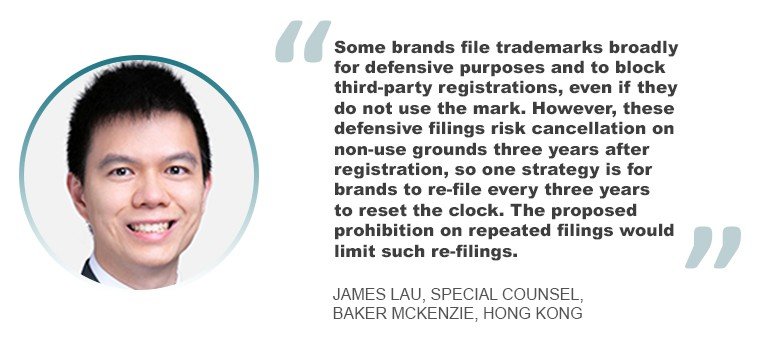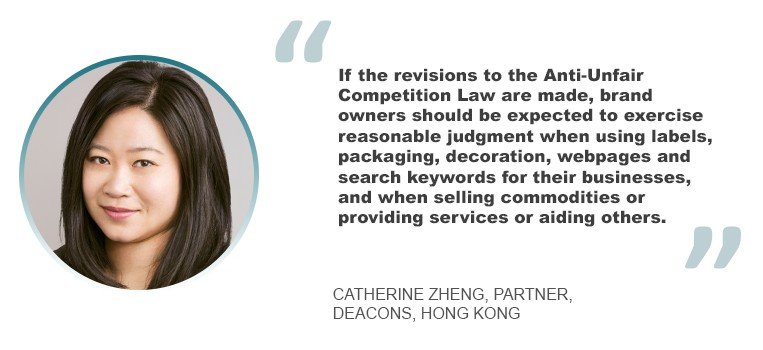As for the impacts on brand owners, Lau believes that the proposed prohibition on repeated filings for identical marks and the new requirement for statements of use are likely to have significant implications for brand owners.
“Currently, some brands file trademarks broadly for defensive purposes and to block third-party registrations, even if they do not use the mark on all claimed goods and services. However, these defensive filings risk cancellation on non-use grounds three years after registration, so one strategy is for brands to re-file every three years to reset the clock,” he explained. “The proposed prohibition on repeated filings would limit such re-filings, and defensive registrations would also face the risk of being lost if the registrant fails to demonstrate use five years after registration.”
The statement of use requirement also means additional work and costs for brand owners, who will need to diligently track the deadlines for filing the statement of use. The preparation and filing of these statements will also lead to increased operational expenses.
Given the enhanced focus on the use of trademarks, Lau advised that brands may need to reassess their defensive filing strategies and appropriately limit the specification of goods and services based on their actual products and business development plans. He also suggested brands should systematically maintain evidence of mark usage to prepare for the statement of use requirement.
“Finally, the shortened opposition period for preliminarily approved applications (from three to two months) also means that brands will have to monitor third-party trademark filings more frequently, as they will have a shorter window to decide whether or not to oppose third-party applications,” said Lau.
Catherine Zheng, a partner at Deacons in Hong Kong, explained that the exposure draft of revisions to the Anti-Unfair Competition Law is in line with the needs in practice and the development trend of the digital economy. She said: “Article 7 of the draft relates to IP, which prohibits the use of identical or similar labels, packaging, decoration or webpages and setting others’ commercial labels as search keywords. It is notable that the draft has expanded to the prohibition on committing confusing acts to include confusing commodities and services, and providing aid or facilitating confusing acts of others.”
Meanwhile, “Article 10 of the draft relates to trade secrets, which prohibits acts of infringing upon trade secrets, including acquiring trade secrets by illicit means, disclosing, using or allowing others to use trade secrets acquired by illicit means or in violation of confidentiality obligation or requirements, and abetting, tempting or aiding a person in acquiring, disclosing, using or allowing others to use trade secrets in violation of confidentiality obligation or requirements.”
Although the Anti-Unfair Competition Law does not deal with personal data, Zheng said that new provisions under Articles 18 and 19 of the draft provide prohibition from improperly obtaining or using the commercial data of another business and implementing unreasonable dissimilar treatment or imposing unreasonable restrictions by using algorithms and analysing user preferences, trading practice and other characteristics.









